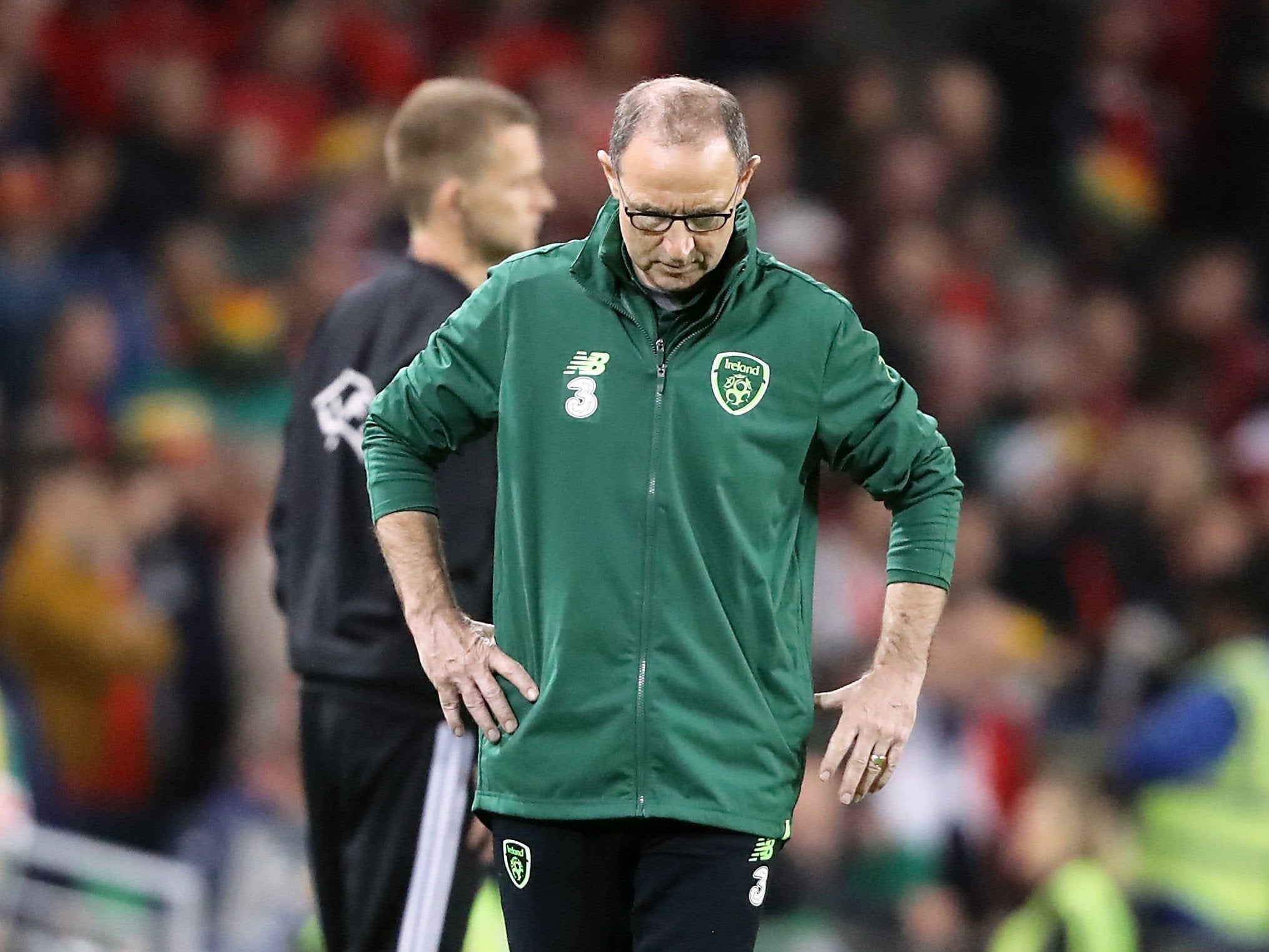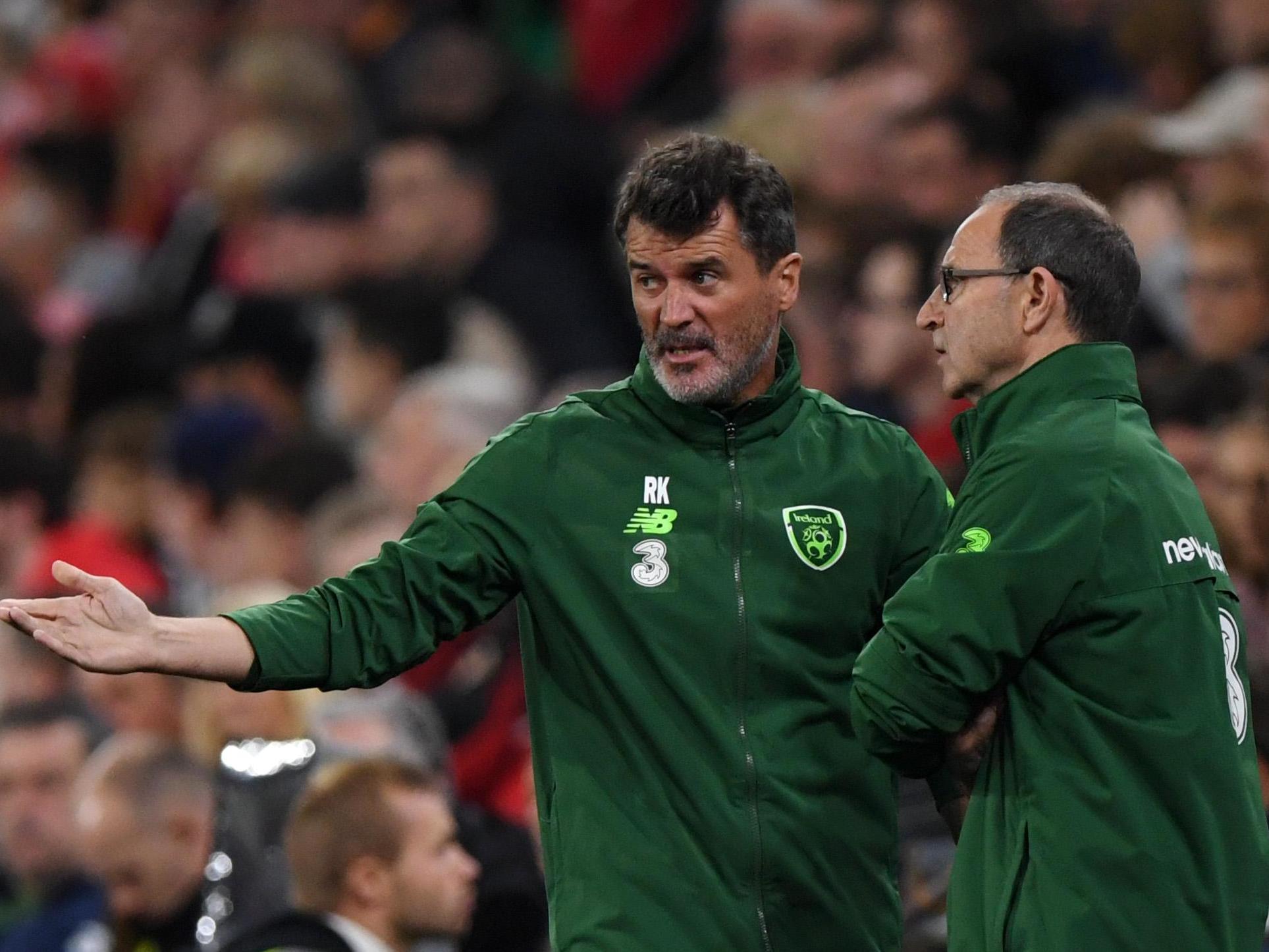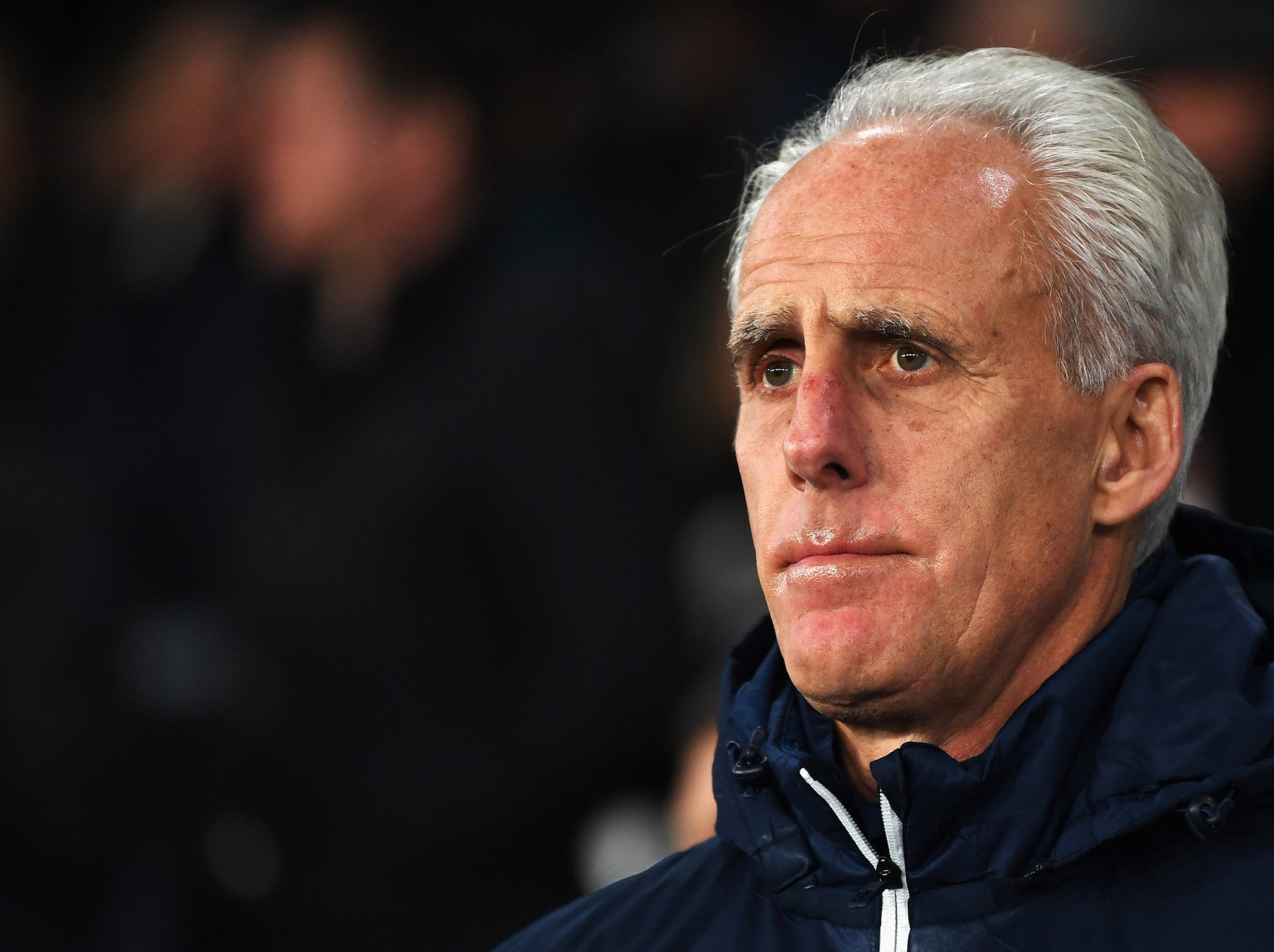Martin O'Neill is yesterday's man but Ireland's future without him remains as bleak
O'Neill may have been hamstrung by FAI disarray and Ireland's weakest talent pool for 40 years, but in reality his rudimentary tactics and motivational speeches stopped being enough
In the depressing last few months of the Martin O’Neill regime, one recent Irish call-up - not, it should be stressed, Declan Rice - went to a senior player to express bemusement about managerial approaches he said would be seen as “amateurish” by some of his lower-level sides. The senior player responded that it’s almost not worth mentioning because O’Neill “doesn’t tend to react well to being questioned”.
That certainly came across in fairly belligerent public appearances by O’Neill over those last few months. It is a belligerence, at least towards new ideas in football, that has partly cost he and assistant Roy Keane their jobs.
Their time is at an end after almost exactly five years, a tenure that mostly represented a qualified success, just with so many more qualifications - and outright arguments - than successes of late.
When O’Neill wasn’t deflecting criticism by appealing to the authority of the 1970s through increasingly tedious anecdotes about his time under Brian Clough - a manager who retired before most of the current Irish squad were born - he was definitively rejecting that criticism, and instead appealing to the argument that any kind of success with that squad was Clough-like alchemy.

He certainly believed he was still capable of it.
The 66-year-old recently took the unusual step for a manager of guaranteeing a result, insisting after October’s drab 1-0 home defeat to Wales that Ireland would of course qualify for Euro 2020. Why?
“Because I’m good,” O’Neill said, before repeating the words “I’ll win”. I’ll win.”
That desperate response was the only argument left, and there wasn’t much to it.
His team have been far from good over the last year and, whatever about winning, they could barely score. Ireland have now gone 396 minutes without a goal.
O’Neill did not illustrate he had any idea about how to solve it, any different thinking. When pressed on it, he would rather reductively point to the lack of “a natural scorer”, like Robbie Keane.
The management staff would privately say the greater problem was just “the lack of players”, full-stop.
That is very difficult to dispute, and O’Neill and Keane have been somewhat unlucky in inheriting a long-gestating situation that has led to Ireland’s weakest talent pool in at least 40 years.

It is now mostly a Championship-level squad, the inevitable result of long-term FAI CEO John Delaney’s inability to tackle obvious longer-term problems within Irish football. Ireland has long produced players - like the Keanes, or Damien Duff - by luck and coincidence and proximity to the Premier League rather than any design. That luck has predictably run out. Almost every level of the system is dysfunctional or disconnected, from the honing of young talent to the beleaguered domestic league, now right up to the senior side. Almost every institutional decision in addressing these issues has meanwhile been merely incremental or temporary, but that includes the bizarre choice to award O’Neill with a new contract at the start of the year.
Ireland have much bigger problems than the manager, and he is far from the only figure that needs replacing, but it can also be true he has become a problem in himself.
Some of this is just a natural case of a regime running its course, as happens so often in football.
There has been no suggestion O’Neill has been able to successfully oversee a transition in the squad, even if that transition had left him with a much weaker team than that he took to Euro 2016.
That is also something that feels connected to the specific way he manages. A manager who generally leaves the training-ground coaching to trusted assistants, O’Neill would effectively use them as his database, before offering key little pieces of football insight and big rousing speeches in the dressing room.

That can have exceptional initial effect, especially with a team that largely picks itself, and did have excellent initial results.
O’Neill remains one of just four managers of Ireland to have qualified for an international tournament, something that will always preserve his legacy; something that will always stand to him.
His ability to emotionally push players further also occasionally saw the team pushed further, further than even Jack Charlton and Mick McCarthy.
Unlike the moral victories of draws that usually characterised their most successful days, O’Neill got wins, and big ones, on big nights. This Ireland beat world champions Germany in a crucial game to first send the side on the way to Euro 2016, and then Italy to send them through to the last 16.
They were also a half away from eliminating the hosts, France. They were able to hope, there was good emotion around the team again.
That is something O’Neill restored, and he is responsible for some of the Irish team’s greatest games.
It’s just that, when that emotion runs out, and it all goes a bit stale, a manager that so plays on it isn’t left with much. Especially in the modern game, and especially when there’s not much to the squad.

Whatever about knowing ways to play and co-ordinated methods of attack, the Irish players often didn’t know where they were playing. O’Neill would only name his team in the hour before games, and not all that specifically. Sources say that Callum O’Dowda and Harry Arter only realised they were supposed to be playing on other sides of midfield through animated calls after the match had already started.
This is why the arguments about the lack of a natural goalscorer are themselves so lacking. It is instead all the more important that teams short on talent have more instruction, more design, something that really was lacking with O’Neill. Rudimentary tactics and motivational speeches are no longer enough.
Ireland need fresh ideas, modern ideas. Domestic-league manager Stephen Kenny has been put forward, and would be a progressive choice. Delaney is likely to want a more glamorous name due to the national team being far and away the FAI’s main source of income, something is just another reflection of the wider problem.
It was also the attraction behind Roy Keane as assistant manager, and a factor that could yet see Robbie Keane serve as an assistant to a returning McCarthy. One collateral of this is that the former midfielder lost what at one point seemed a certain job as O’Neill’s outright successor.
Nothing is certain about the Irish team now, other than that bigger change than the manager is required. It’s just that change really is required there, too.
Join our commenting forum
Join thought-provoking conversations, follow other Independent readers and see their replies
Comments
Bookmark popover
Removed from bookmarks